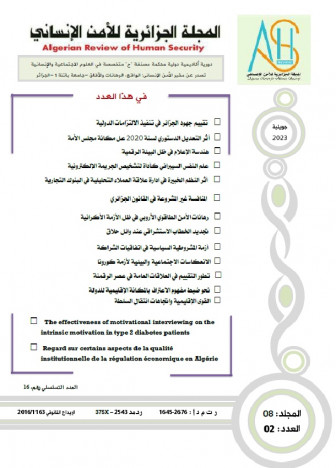إدراك التهديدات الأمنية بين المقاربات العقلانية والمقاربات المعرفية - دراســــة نــــظـــــريــــة -
DOI:
https://doi.org/10.59791/arhs.v3i2.2508Keywords:
security perception, societal security crisis, rational decision, cognitiveAbstract
Studying security perception, linked the concept to international conflicts and crises, is one of the most important academic research fields, which have been developed within Western literature to mainly examine the interactive relations between States in order to analyze how information are received in decision-making circles, besides to the practices of the international system actors. Such literature uses a rational approach to analyze policy makers' decisions to face the risks of international insecurity threats and challenges. However, the shift of the security crises analysis from the inter-state to the intra-state level, along with the emergence societal security crisis phenomenon – in which analytical frameworks of the nature of security problems, the parties involved, and perceptions and motivations of each party – widely differentiate, requires the analysis of policy making mental and cognitive processes (policy maker’s perceptions, misperception, comprehension bias, beliefs and motives), which can explain the difficulties of addressing security reality in non-democratic states, including the Arab States which have been facing new societal security crises in the context of the Arab Spring, since 2011.




